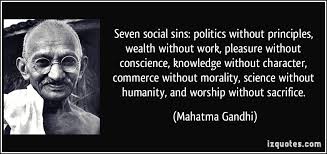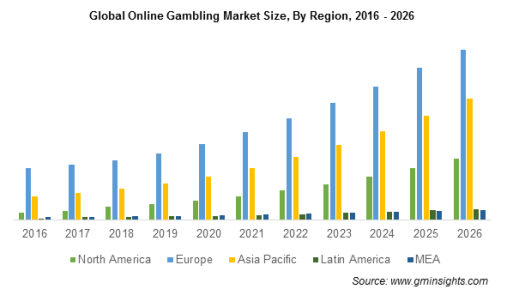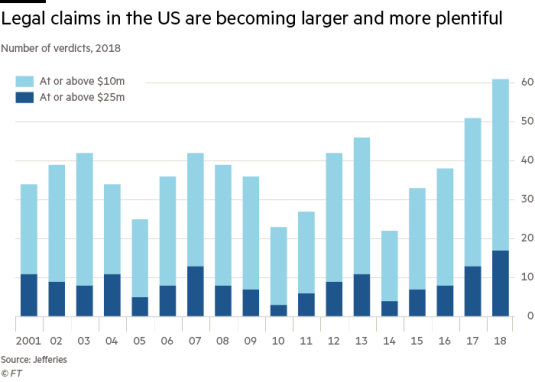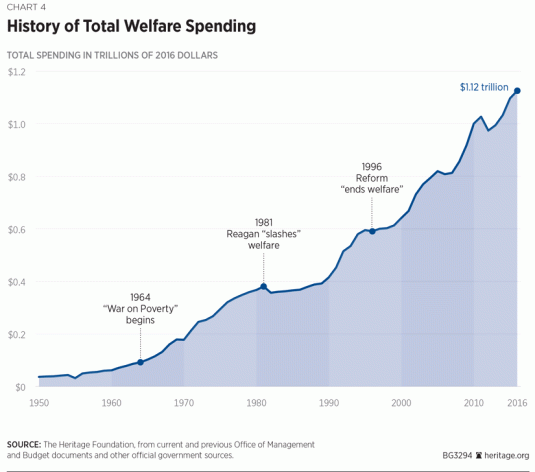
The Seven Social Sins is a list created by Mohandas Karamchand Gandhi in 1925. He published this list in his weekly newspaper “Young India” on October 22, 1925. Later he gave this same list to his grandson, Arun Gandhi on their final day together shortly before his assassination. The Seven Sins are:
- Wealth without work.
- Pleasure without conscience.
- Knowledge without character.
- Commerce without morality.
- Science without humanity.
- Religion without sacrifice.
- Politics without principle.
I wrote a blog for each of Gandhi’s “sins” about ten years ago. The blogs seemed to be quite popular with my readers. I am going to update and repost each of the Seven Sins for the next few weeks. Karen and I are making some major changes in our living arrangements and I probably will not find the time to write much new material. I am reposting these because they still seem to be quite relevant in these challenging and chaotic times.
Wealth Without Work: The First of Gandhi’s Seven Social Sins
Once upon a time in this great country, a model for attaining wealth and a set of rules to accomplish this objective stemmed from 3 basic beliefs. These were:
- You worked hard, long and industriously.
- You attained as much education as you could absorb and afford.
- You treated all of your engagements with absolute honesty and scrupulousness.
Somewhere during the later 20th Century these 3 Cardinal beliefs (Above) about attaining great wealth were replaced by the following beliefs:
- Wealth can be attained at a gambling casino or by winning a lottery if you are lucky enough.
- Wealth can be attained by suing someone and with the help of a lawyer who will thereby gain a percentage of your lawsuit.
- Wealth can be attained by finding some means of acquiring a government handout for the remainder of your life.
Admittedly, not all Americans subscribe to the second set of beliefs and fortunately there are many who still subscribe to the first. Nevertheless, I think you would be hard pressed to argue that gambling, casinos, government handouts and lawsuits have not multiplied exponentially over the past fifty years. The following are some charts which I think illustrate my points rather graphically.



The nature of human beings is to want things fast and with a minimum of effort. This is normal and not to be thought of as deviant or unusual. However, as we age and develop more self-control and wisdom over our daily affairs, we learn to temper our desire for instant gratification with a more mature perspective. Noted quality guru, Dr. W. E. Deming maintained that people wanted “Instant Pudding.” For Deming this meant, change without effort, quality without work and cost improvements overnight. Added together, “Instant Pudding” was Dr. Deming’s metaphor for the desire to obtain results with a minimum investment of time and energy. Dr. Deming continually warned his clients that there was no “Instant Pudding” and change would take years of hard work and could not be accomplished without continued dedication and focus.
Unfortunately, our media and even schools today seem to emphasize the possibility of achieving success and wealth overnight. Sports stars are depicted as suddenly being offered incredible contracts. Movie stars are shown as going from unknown to overnight fame and fortune. Singers and musicians seem to suddenly achieve fame despite being barely out of their teens and in many cases barely into their teens. It would appear that everywhere we look fame, fortune and success happen overnight. All it takes is to be discovered. This might happen if you can get on American Idol or be found by the right booking agent or obtain a guest appearance on a celebrity TV show. In some cases, all it takes is the right YouTube video to accomplish overnight success. One day PSI was an unknown Korean musician and in a few short weeks, he was celebrating success by a dinner in the White House and appearing at the Times Square New Year’s Eve celebration. How can anyone dispute that all that is needed for fame and fortune is to be in the right place at the right time?
You may be asking “yes, but what exactly did Gandhi mean by this “sin?” The M. K. Gandhi Institute for Nonviolence gives the following explanation:
“Wealth Without Work: This includes playing the stock market; gambling; sweat-shop slavery; over-estimating one’s worth, like some heads of corporations drawing exorbitant salaries which are not always commensurate with the work they do. Gandhi’s idea originates from the ancient Indian practice of Tenant Farmers. The poor were made to slog on the farms while the rich raked in the profits. With capitalism and materialism spreading so rampantly around the world the grey area between an honest day’s hard work and sitting back and profiting from other people’s labor is growing wider. To conserve the resources of the world and share these resources equitably with all so that everyone can aspire to a good standard of living, Gandhi believed people should take only as much as they honestly need. The United States provides a typical example. The country spends an estimated $200 billion a year on manufacturing cigarettes, alcohol and allied products which harm people’s health. What the country spends in terms of providing medical and research facilities to provide and find cures for health hazards caused by over-indulgence in tobacco and alcohol is mind-blowing.” ‘There is enough for everyone’s need but not for everyone’s greed’, Gandhi said.
There is a visual problem here that perhaps underlies much of the current thinking about success. The media loves to trumpet short success stories that will grab anyone’s attention. We are constantly bombarded with headlines such as:
- How I lost 25 lbs. in three weeks.
- Abs of steel in 2 weeks.
- Learn a language in ten days.
- Make 50,000 dollars in one month.
- How to pick the winning number for mega-millions.
- How to find your dream job in 21 days.
Each of these sites (click on to hyperlink to the actual site) promises you overnight success or at least success in a much shorter time span than is realistic. These ads are in the news, checkout stands, on TV and just about anywhere you turn around. The constant daily bombardment of such ads creates a zeitgeist in which overnight success not only seems to be possible; but it actually seems to be the norm. If you are not an overnight success, if you cannot become rich in days rather than years, if you contemplate a life of hard work to attain your fame and fortune, than something is wrong with you. Anyone subscribing to the first 3 sets of beliefs I mentioned in the opening is a peculiar species today. The most common belief about success in the new millennium can be summed up as:
I don’t have time to wait. I don’t have the patience to wait. I don’t want to spend my life waiting. I am entitled to success now. Why should I have to wait? I am as good as any of these rich successful people. If only everyone could see how good I really am, I would get the fame and fortune I deserve now. If you expect me to shut up and work hard, I will leave and go elsewhere. You need me more than I need you.
I believe that Gandhi and many of my generation would find such ideas very peculiar not to mention that they contradict certain universal principles. Every time I hear of a new terrorist attack in this country or a new massacre at some workplace, I wonder how much the instigator was influenced by his or her desire for overnight fame and fortune. In some bizarre out-of-this-world thinking, these maniacs equate their picture on page one of the news with a sort of glory that is accomplished by their bizarre and cruel rampage. The more they kill or maim, the greater they think their glory will be. We can look for all the “reasons” why but we will never find any “good” reasons for anyone to take such anti-social actions against others. The paradox is that often the very people they hate are the ones they wanted attention or recognition from.
Ok, time for questions:
Have you raised your children to believe in hard work? Are you one of the parents who want to make sure their kids have it easy? How do you know how much hard work is enough? Do you think you are entitled to success because you work hard? What other factors play a role in success? Is it fair that some people do not seem to have to work hard and yet still reap big rewards? Do people today have it too easy compared to the immigrants that founded this country?
Life is just beginning.

Feb 07, 2014 @ 05:03:21
You really make it seem so easy with your presentation but I find
this matter to be actually something that I think I would
never understand. It seems too complicated and very broad for me.
I’m looking forward for your next post, I will try to get the hang of
it!
LikeLike
Feb 08, 2014 @ 12:24:22
Thanks, hand in there, it gets easier.
LikeLike
Mar 06, 2014 @ 11:41:39
Hey I know this is off topic but I was wondering if you knew of
any widgets I could add to my blog that automatically tweet my newest twitter updates.
I’ve been looking for a plug-in like this for quite some time and was
hoping maybe you would have some experience with something like this.
Please let me know if you run into anything. I truly enjoy reading your blog
and I look forward to your new updates.
LikeLike
Mar 08, 2014 @ 22:48:29
No Sorry, I don’t. When I post my blogs, I do a manual Tweet. My app was supposed to do automatic updates when posting but it does not seem to work.
LikeLike
Mar 10, 2014 @ 02:41:51
You can definitely see your skills within the article you write.
The world hopes for even more passionate writers like you who aren’t afraid to mention how they
believe. Always follow your heart.
LikeLike
Mar 10, 2014 @ 02:59:24
Hi friends, good post and good urging commented here, I am actually enjoying by these.
LikeLike
Mar 10, 2014 @ 05:59:05
Howdy! This post couldn’t be written any better!
Reading this post reminds me of my old room mate! He always kept chatting about this.
I will forward this article to him. Pretty sure he will have a good read.
Thank you for sharing!
LikeLike
Mar 11, 2014 @ 00:09:47
Thank You very much for you comments.
LikeLike
Feb 17, 2016 @ 19:50:40
Found this article by searching What did Gandhi mean by “wealth without work”? Thank you for your thoughtful perspective.
I’d like to apply this one step further.
As a successful entrepreneur myself, I’ve been tempted to build my business to the point where it no longer needs me… I can take months of vacations every year, while my staff run the business and I continue to reap the profits.
Whenever I’ve gotten close to that, it feels unsettling, and very unfulfilling.
Then I scale back my business, to the point where it’s clear that when I take money from people, I’m personally giving them equal or greater value, and it feels like “an honest pay for an day’s work.” There’s meaning again in the money that’s received. There’s dignity in having a just and balanced exchange.
If I’m able to make my business systems more streamlined and efficient, such as automating certain processes, then instead of always seeking more profits, I can lower the price to serve more people, or start giving away some things (previously sold) for free, perhaps with some kind of exchange such as feedback or pay-it-forward.
LikeLiked by 1 person
Feb 17, 2016 @ 20:30:08
great comments. Always try to give back more than you received. I think you are on the right track
LikeLike
Jan 07, 2017 @ 16:02:10
I gave a short talk in my class based on this topic and your blog was very useful in filling a lot of gaps in my notes. Thank You so much sir.
LikeLike
Sep 04, 2017 @ 10:51:23
Hi! I also found this site while doing a search for Gandhi’s exact words about wealth without work, and was pleasantly surprised in reading this entry to see quotes by Dr. Deming, my father’s hero, whose philosophy I’ve thus been raised hearing my whole life. Since one of my personal rules of life is, “there is no magic diet pill to life,” I think there’s a lot of good stuff here!
I want to push back a little on one of the three “new” principles however, specifically the comment about government handouts. What I and my sister (who currently makes a six figure salary) learned throughout our lives is that the so-called “social safety net” is there because things can happen in our lives beyond our control, necessitating public assistance. In my sister’s case, when my father had two strokes while she was still a student, and I was thousands of miles away, struggling with my chronic illness and thus barely making it myself, she had no choice but to go on food stamps for a time, until she finished school, got a great job, and was again able to afford care for herself and my father. His Medicare also helped her with that, just as the Affordable Care Act helped me when I lost my job and had no other way to afford my preexisting condition. As you pointed out, Gandhi believed that individuals shouldn’t take more than they needed – that doesn’t eliminate need however, and Gandhi was a staunch advocate for the poor. (Being an Indian myself, I know a decent amount about Gandhi too. 😉
I guess the other principle I’m arguing for is one that I had to learn in therapy, which is implicit in my “no magic diet pill to life” belief: nothing is Black and white. This is why I push back on aphorisms or “words of wisdom.” While it would be nice if life was consistent and fair, and everybody could live a life where they would never be in need for assistance from the government or family or what have you, I find that’s not reality for many people. I cringe when I hear people decry government assistance as a “handout,” when it’s only a handout for those who abuse it – in my experience, many people use it when they run out of any other option. Just my $.02.
LikeLiked by 1 person
Sep 04, 2017 @ 13:54:29
I think your comments are right on the mark. I hope I did not give the wrong impression about what people call “government handouts.” I am a believer that we all “get by with a little help from others.” I think a society must be built on compassion for those less able than others. It is not always possible to teach someone to fish and sometimes it is simply necessary to distribute the fish as Jesus did on the mountain with his loaves and fishes. Thank you for taking the time to comment. I am very glad that you found my article helpful. Dr. Deming was my hero also and one whose philosophy has formed the foundation for my consulting practice.
LikeLike
Jan 02, 2021 @ 13:40:39
Sweet site, super pattern, real clean and apply friendly.
LikeLike
Jan 30, 2021 @ 21:49:50
Thank you Geraldo.
LikeLike
Feb 04, 2021 @ 07:39:08
having politics without truth(s) to justly dictate the action creates chaos, which ultimately leads to violence. Gandhi called these missteps “passive violence”, ‘which fuels the active violence of crime, rebellion, and war.’ He said, “We could work ’til doomsday to achieve peace and would get nowhere as long as we ignore passive violence in our world.”
LikeLike
Feb 06, 2021 @ 16:45:32
He was a very wise man.
LikeLike
Mar 31, 2021 @ 07:14:08
Oh my goodness! Awesome article dude! Thanks, However I am going through problems with your RSS. I don’t know the reason why I cannot subscribe to it. Is there anybody having the same RSS issues? Anyone who knows the answer can you kindly respond? Thanks!!
LikeLike
Apr 02, 2021 @ 05:18:16
Sorry for the problem. I don’t know why it happens. I wish I knew more about WordPress. I will try to check this out.
LikeLike
Apr 02, 2021 @ 03:37:32
Next time I read a blog, Hopefully it doesn’t disappoint me as much as this particular one. I mean, Yes, it was my choice to read, but I genuinely thought you’d have something helpful to talk about. All I hear is a bunch of moaning about something that you can fix if you weren’t too busy searching for attention.
LikeLike
Apr 02, 2021 @ 05:12:40
Sorry to disappoint.
LikeLike
Aug 12, 2022 @ 22:42:58
Hi, sorry you did not find the writing useful. What is it that you think I should be able to fix? You sort of lost me with this comment. And why do you think I am searching for attention?
LikeLike
Apr 12, 2021 @ 08:52:18
I have acquired some new items from your web page about personal computers. Another thing I’ve always considered is that computers have become a specific thing that each residence must have for a lot of reasons. They provide convenient ways in which to organize households, pay bills, shop, study, pay attention to music as well as watch tv series. An innovative strategy to complete these tasks is to use a laptop computer. These personal computers are mobile, small, highly effective and easily transportable.
LikeLiked by 1 person
Sep 20, 2022 @ 05:49:11
Dear John
Hello from the UK. Many thanks for your post. Very good analysis and a lot of good points. I much appreciate the 3 basic beliefs comparison.
The problem with ‘hard work’ is what is the definition? People can work long hours yet not achieve anything worthwhile or achieve what others may do in half the time. Is it back breaking work?
I see work as something that should be fulfilling and you can be satisfied at the end of the day looking back. And that you have enough. There is the story of the Israelites in the wilderness collecting manna, some gathered more, some gathered less, but everyone had enough.
It is never how much you have but how you got it, by fair means or foul, and what what you do with it that counts. And some will trample on others to get what they want, then try and look good by philanthropic works.
As regards government handouts I don’t think governments ever do this really well. The state cannot care like an individual can, nor idealistically assess a person’s need. Nevertheless, it works reasonably when people are honest and are prepared to work but fall on hard times.
My wife tells a story of one of her friends who worked as a social worker in south Wales where someone need help for a bit, but once over the crisis, that person said, no thank you, I don’t need any more help. Today that attitude is less prevalent as people have become more reliant on the state.
But the state cannot love as people can.
kind regards
LikeLike
Sep 20, 2022 @ 08:36:41
Thank you for the thoughts and comments. They are well taken. As for defining Hard Work, my mentor Dr. Deming used to say that definitions always required an “operational definition” but the end result was something that two reasonable people could agree on and work towards. I have always found the “meaning” of things to be one of life’s great challenges. As for government, I think I like Burke’s thought that “The government that governs best is the government that governs least.” However, the word “least” here is key since we will all define it differently with some extremists meaning “not at all.” John
LikeLiked by 1 person
Jan 15, 2023 @ 07:30:20
Picture this – 3 am in the morning, I had a line of fiends stretched around the corner of my block. It was in the freezing middle of January but they had camped out all night, jumping-ready to buy like there was a sale on Jordans. If you were 16 years old, in my shoes, you’d do anything to survive, right? I got good news though; I MADE IT OUT OF THE HOOD, with nothing but a laptop and an internet connection. I’m not special or lucky in any way. If I, as a convicted felon that used to scream “Free Harlem” around my block until my throat was sore, could find a way to generate a stable, consistent, reliable income online, ANYONE can! If you’re interested in legitimate, stress-free side hustles that can bring in $3,500/week, I set up a site you can use: https://incomecommunity.com
LikeLike